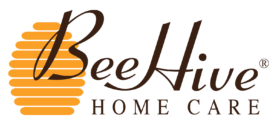Did you know there is a proper way to breathe? If you stand sideways facing a mirror and take a breath, is your upper chest moving or is your stomach? Most people would find their chest is what moved which means that only the upper part of the lungs are filling with oxygen. Breathing exercises for older adults can be extremely beneficial.
When you breathe and your stomach expands, it’s a sign that your diaphragm, the large muscle between your chest and digestive organs, is doing the work. It’s a stronger muscle than those in your chest and neck that contract to bring air only into the upper lungs.
Learning to use your diaphragm has health benefits, in part because your body is getting more oxygen. Chest breathing, in comparison, has been tied to increased anxiety, increased blood pressure and higher levels of heart disease. In seniors with pulmonary issues, shallow breathing may also lead to feelings of lightheadedness or dizziness, fatigue, and increased feelings of pain.
Practicing diaphragmatic breathing will help strengthen the diaphragm muscle and can reduce health impacts from shallow breathing. To practice deep breathing, use the moments as you go to bed and as you wake up, as you’re lying on your back. Put one hand over your belly button and the other hand above it on your stomach. Concentrate on slow breaths that make the hand over your navel be the one that rises first. The more you practice, the more automatic it will be to improve your breathing pattern from shallow to diaphragmatic.
During the day, another breathing exercise can be done while seated. Relax your stomach muscles and inhale, feeling your belly expand as your lungs expand. Hold it for a moment, then exhale slowly, pulling your stomach in to squeeze the air from your lungs. Imagine that stress and anxiety are leaving your body with each exhalation.
Breathing can aid with reducing anxiety. At BeeHive Home Care, if we notice our client is having an anxious day, the caregiver will suggest slow, deep breaths which provide more oxygen and help reduce pain and anxiety. Studies at the National Institutes of Health have shown that controlled breathing can be particularly helpful for the elderly, who may not have the ability for other exercise or physical activity.
If deep breathing causes any discomfort or lightheadedness, be sure to discuss that with your physician.
Our goal is to offer compassionate in-home care to senior adults who need assistance with daily tasks such as bathing, dressing, medication reminders, toileting, and meals. Our in-home assisted living services can be found in many communities across Texas; we’re here to help when you or a family member are no longer able to safely care for themselves. Call today to find out more about how we can assist you and your loved one.

